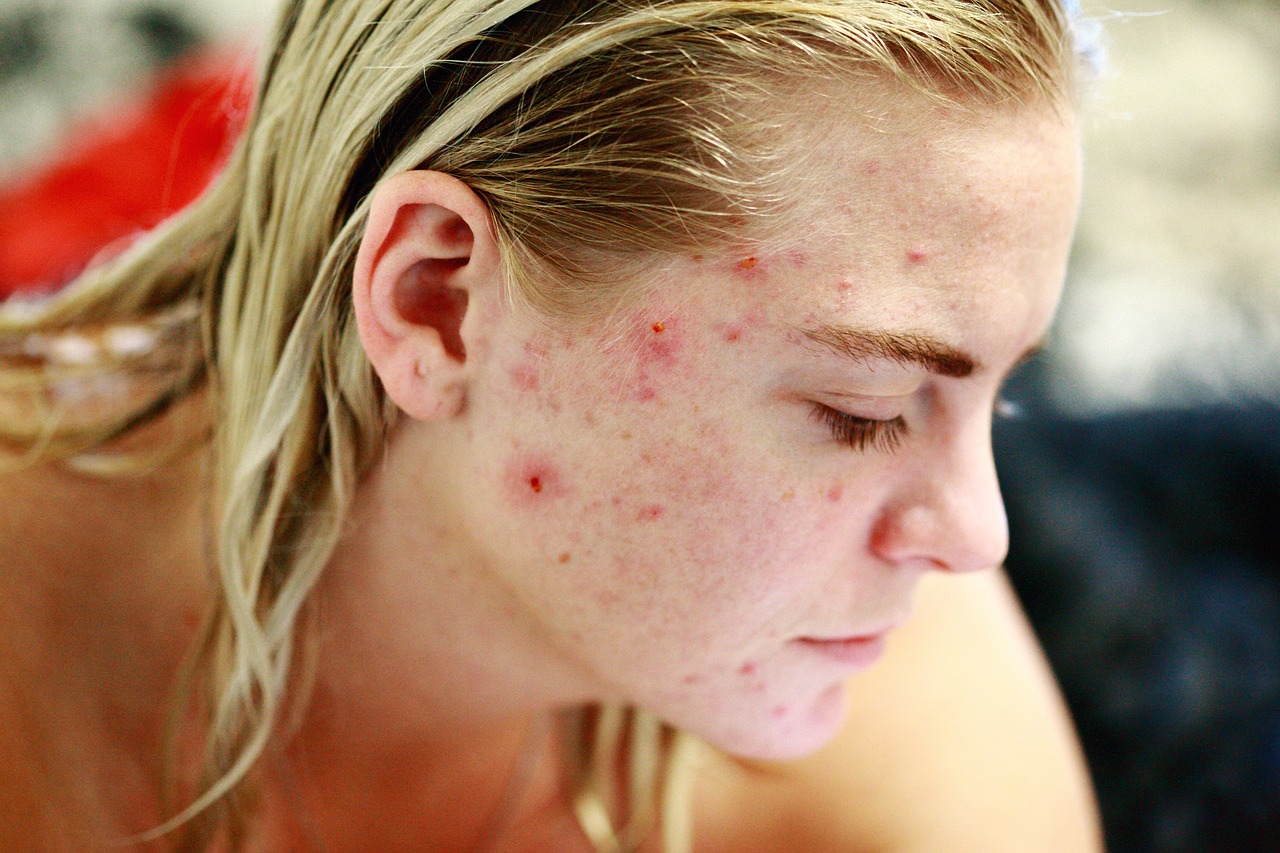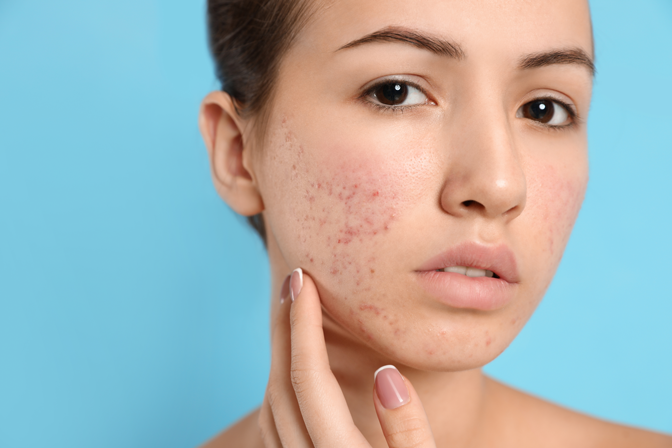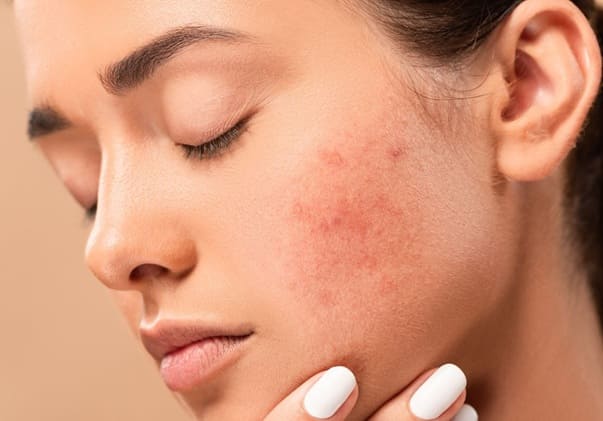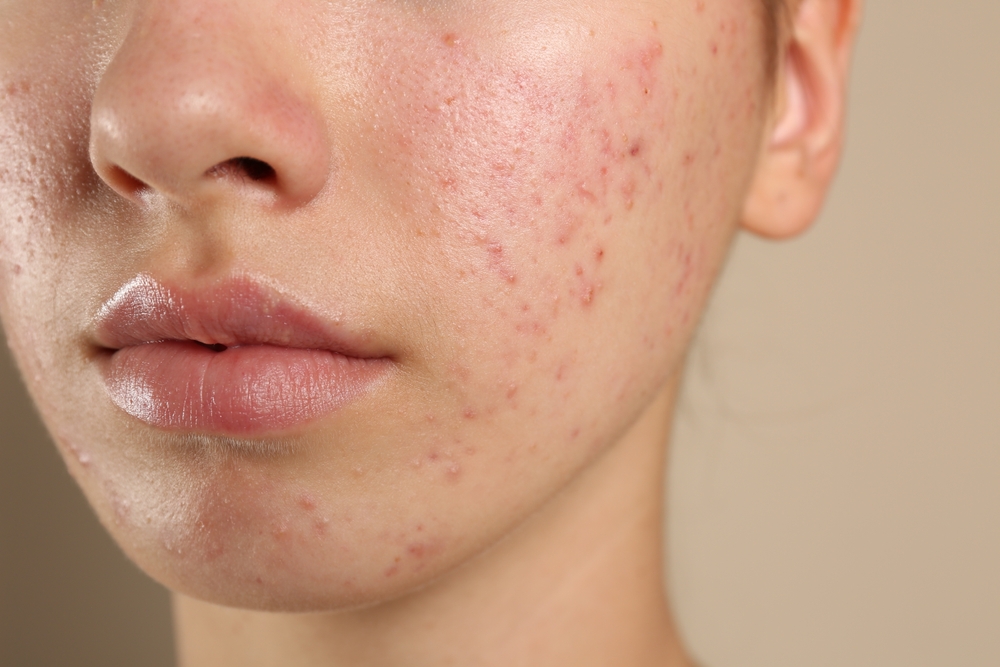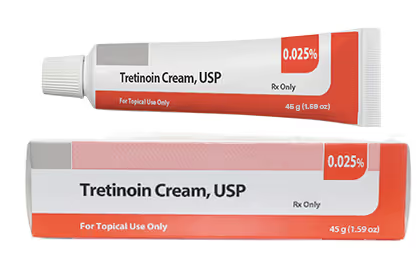Acne is one of the most common skin conditions, yet navigating the path to clear skin can feel overwhelming and isolating. While many topical treatments are available, sometimes a more systemic approach is needed to control breakouts effectively. Doxycycline, a time-tested oral medication, is a powerful tool in the fight against acne. It helps clear skin by addressing two of the root causes of breakouts: bacteria and inflammation.
This guide offers a comprehensive overview of Doxycycline as a treatment for acne. We will explore how it works, who it is best suited for, what you can expect during treatment, and how it fits into a complete skincare regimen. Our goal is to provide expert information to help you understand your options and make informed decisions about your skin health.
What Is Doxycycline and How Does It Work for Acne?
Understanding how a medication works is the first step toward feeling confident in your treatment plan. Doxycycline is more than just a standard antibiotic; it has specific properties that make it particularly effective for inflammatory acne.
Understanding Doxycycline
Doxycycline belongs to a class of medications known as tetracycline antibiotics. For decades, it has been used to treat a wide range of bacterial infections. However, its role in dermatology extends beyond simply fighting bacteria. It is a go-to prescription for inflammatory conditions like moderate to severe acne and rosacea because of its unique dual-action mechanism.
The Dual Action Against Acne
Doxycycline’s success in treating acne comes from its ability to tackle the condition from two different angles: by reducing acne-causing bacteria and by calming inflammation.
- Antibacterial Properties: One of the key contributors to acne is a bacterium called Cutibacterium acnes (C. acnes), which lives in the hair follicles of the skin. When follicles become clogged with oil and dead skin cells, these bacteria can multiply rapidly, leading to infection and inflammation—the red, swollen pimples characteristic of acne. Doxycycline works by inhibiting the growth and multiplication of C. acnes. By reducing the bacterial load on the skin, it helps prevent new pimples from forming and allows existing ones to heal.
- Anti-inflammatory Properties: Perhaps the most critical function of Doxycycline in acne treatment is its powerful anti-inflammatory effect. Research has shown that Doxycycline can reduce inflammation at doses too low to have a significant antibiotic effect, a discovery that highlights its unique therapeutic benefits for skin. It works by suppressing certain inflammatory chemicals and enzymes in the body that contribute to the redness, swelling, and discomfort of acne lesions like papules, pustules, and cysts. This anti-inflammatory action helps calm the skin, reduce the severity of breakouts, and may even help minimize the risk of scarring.
At Honeydew, our licensed providers understand how to leverage both the antibacterial and anti-inflammatory properties of Doxycycline to create a treatment plan tailored to your specific type of acne and skin sensitivity.
Who Is a Good Candidate for Doxycycline?
Doxycycline is not a first-line treatment for everyone. It is typically reserved for specific types and severities of acne where other treatments may have fallen short.
A good candidate for Doxycycline usually has:
- Moderate to Severe Inflammatory Acne: This includes individuals with numerous red, inflamed pimples (papules), pus-filled bumps (pustules), and deeper, painful lesions like nodules and cysts. This type of acne is often difficult to control with topical treatments alone.
- Acne Unresponsive to Topical Treatments: If you have consistently used over-the-counter products or prescription topical medications (like benzoyl peroxide or retinoids) for several months without seeing significant improvement, an oral antibiotic like Doxycycline may be the logical next step.
- Acne on the Chest, Back, or Shoulders: Body acne can be widespread and challenging to treat with creams and lotions. An oral medication provides a systemic approach, treating the skin from the inside out and covering large surface areas more effectively.
- A Need for Rapid Control: For individuals experiencing a severe or painful flare-up, Doxycycline can help bring the inflammation under control relatively quickly while a long-term maintenance plan is established.
The decision to prescribe Doxycycline is made after a careful evaluation of your acne type, treatment history, and overall health. During your 100% online consultation at Honeydew, your provider will work with you to determine if Doxycycline is the most appropriate and effective choice for your skincare journey.
The Doxycycline Treatment Process: What to Expect
Starting any new medication comes with questions. Knowing what to expect during the treatment process can help you feel prepared and stay committed to your plan for the best possible results.
Starting Your Treatment and Dosage
The process begins with a consultation with a licensed dermatology provider. At Honeydew, this happens over video, allowing you to connect with an expert from the comfort of your home. Your provider will assess your skin, discuss your history, and build your personalized treatment plan.
If Doxycycline is prescribed, the dosage will be tailored to you. Common dosages for acne range from 50 mg to 100 mg, taken once or twice daily. The specific dose depends on the severity of your acne and your provider's clinical judgment. Your medication can be sent directly to your house or to a local pharmacy of your choice.
How Long Until I See Results?
Patience and consistency are crucial when treating acne with oral medication. Doxycycline does not work overnight. While some individuals may notice a reduction in redness and inflammation within the first few weeks, it typically takes 8 to 12 weeks of consistent use to see significant, meaningful improvement. It is vital to continue taking the medication as prescribed, even if you don't see immediate changes. Tracking your progress with photos, a feature integrated into the Honeydew platform, can be a great way to see subtle changes over time and stay motivated.
Duration of Treatment
To minimize the risk of antibiotic resistance, Doxycycline is generally prescribed for a finite period, typically 3 to 6 months. The goal is not to keep you on an antibiotic indefinitely but to use it as a tool to gain control over your acne. It acts as a bridge, clearing active breakouts so that a long-term maintenance therapy can take over and keep your skin clear. Once your acne is well-controlled, your provider will work with you to taper off the Doxycycline and transition to a sustainable long-term regimen, which often includes topical treatments like Tretinoin.
Combining Doxycycline with Other Acne Treatments
Doxycycline is rarely used in isolation. The most effective approach to treating acne is a comprehensive one that targets the condition from multiple pathways. Your provider will likely recommend using Doxycycline alongside other treatments to maximize results and establish a plan for long-term clarity.
Topical Treatments
Pairing Doxycycline with the right topical treatments is standard practice. These may include:
- Topical Retinoids: Medications like Tretinoin are the cornerstone of long-term acne management. They work by increasing skin cell turnover, which helps prevent pores from becoming clogged in the first place. While Doxycycline clears existing inflammation, retinoids work to prevent future breakouts.
- Benzoyl Peroxide: This agent is an excellent companion to any oral antibiotic because it kills C. acnes bacteria through oxidation and, importantly, helps prevent the development of antibiotic resistance.
- Topical Antibiotics: A topical antibiotic like Clindamycin may be prescribed to provide additional bacteria-fighting power directly on the skin's surface.
For many patients, a custom compounded cream that combines several of these ingredients into a single, easy-to-use formula can be a convenient and effective option offered by Honeydew providers.
Other Oral Medications
Doxycycline is just one of several oral medications available for acne. If it is not the right fit, or if your acne has a different primary cause, your provider may consider other options:
- Spironolactone: For females whose acne is primarily driven by hormonal fluctuations, Spironolactone can be highly effective. It works by blocking the effects of androgen hormones on the oil glands, reducing sebum production.
- Accutane (Isotretinoin): For any type of acne, especially cases that are persistent or have not responded to other therapies like antibiotics, Accutane is a highly effective option. It is a derivative of vitamin A that addresses all four major causes of acne, often leading to long-term remission.
Potential Side Effects and How to Manage Them
While Doxycycline is generally well-tolerated, it is important to be aware of potential side effects. Most are manageable and can be minimized with simple precautions.
Common and Manageable Side Effects
- Sun Sensitivity (Photosensitivity): Doxycycline can make your skin much more susceptible to sunburn. It is essential to be diligent with sun protection. Use a broad-spectrum sunscreen with an SPF of 30 or higher every day, wear protective clothing, and avoid peak sun exposure.
- Gastrointestinal Upset: Some people experience nausea, stomach cramps, or an upset stomach. Taking the pill with a meal (but avoiding dairy) can significantly help reduce this.
- Pill Esophagitis: The pill can sometimes irritate the esophagus if it gets stuck. To prevent this, always take your Doxycycline capsule with a full glass of water and remain sitting or standing upright for at least 30-60 minutes after swallowing it. Avoid taking it right before you lie down to sleep.
Important Considerations
- Interaction with Dairy and Supplements: Calcium, whether from dairy products, antacids, or supplements, can bind to Doxycycline in the stomach and prevent it from being absorbed properly. The same is true for iron, magnesium, and bismuth subsalicylate (found in Pepto-Bismol). It's best to wait at least two hours before or after taking Doxycycline to consume these products.
- Pregnancy and Children: Doxycycline should not be used by pregnant women or children under the age of 8, as it can affect tooth development.
Your Honeydew care team is available for ongoing support. If you experience any side effects, you can reach out anytime. We can provide guidance on how to manage them or adjust your treatment plan to ensure your comfort and safety.
Doxycycline vs. Other Common Acne Treatments
It's helpful to see how Doxycycline compares to other medications to understand its specific role in an acne treatment plan.
TreatmentPrimary MechanismBest ForDoxycyclineAntibacterial and anti-inflammatoryModerate to severe inflammatory acne; used short-term (3-6 months)MinocyclineAntibacterial and anti-inflammatory (Tetracycline class)Similar to Doxycycline, though sometimes with a different side effect profile.SpironolactoneHormonal (anti-androgen)Hormonal acne in adult females; can be used long-termAccutane (Isotretinoin)Shrinks oil glands, reduces oil, prevents clogged pores, anti-inflammatoryAny type of acne, especially persistent or scarring acne; offers potential for long-term remissionTretinoin (Topical)Normalizes skin cell turnover to prevent clogged poresLong-term maintenance for most acne types, comedonal acne
The Honeydew Approach: Personalized Care for Lasting Results
We understand that dealing with persistent acne is a frustrating journey, and finding a treatment that actually works without disrupting your life is key. That is our mission at Honeydew: to make expert dermatological care accessible, affordable, and personalized for you, all from the comfort of your home.
If Doxycycline isn't the right choice, or if you're unsatisfied with your current treatment, our providers are committed to finding a solution that fits your needs. We offer the most personalized treatments available, designed to maximize results while minimizing side effects. Our providers can manage, adjust, and recommend treatments completely online, ensuring you get the results you are looking for.
Our comprehensive approach includes a wide range of clinically-proven treatments. For persistent acne, we are experts in prescribing and managing Accutane (Isotretinoin), and we even offer innovative approaches like low-dose Accutane to provide the same powerful results with fewer side effects. For those with hormonal acne, we prescribe Spironolactone. And for many of our patients, we create unique custom-compounded formulas that combine multiple powerful ingredients into one simple application.
Our expertise isn't limited to acne. We also treat conditions like eczema and psoriasis with cutting-edge treatments that can offer life-changing relief. With our online tools, you can connect with your care team, track your skin's progress with photos, and get fast support whenever you need it. By making it easier to stay on top of your care, we improve results.
You don't have to navigate your skin journey alone. Real people achieve real results with our support. If you are ready to take control of your skin, connect with a licensed provider at Honeydew today. Same-day appointments are available.

